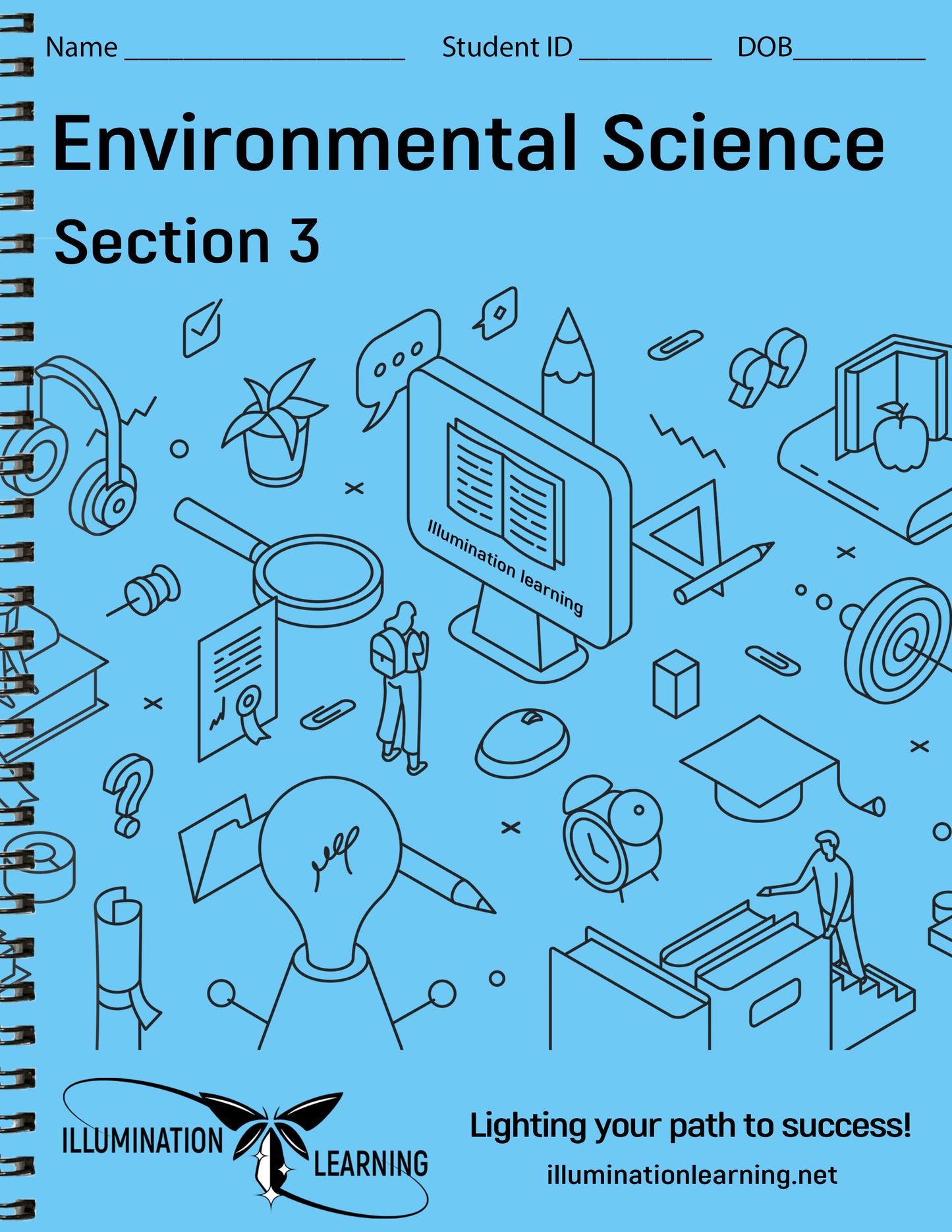ILLUMINATION LEARNING
Environmental Science 3
Environmental Science 3
Couldn't load pickup availability
About this Course
The Environmental Science section 3, course focuses on the sustainable use, management, and conservation of natural resources. It introduces key concepts regarding human impacts on the environment, emphasizing the importance of understanding natural resource availability and their sustainable management. Students learn to differentiate between renewable and non-renewable resources, the challenges associated with each, and the importance of balanced extraction and use. The course promotes critical thinking through evidence-based arguments about how human activities influence ecosystems and resources, urging students to propose sustainable solutions to environmental issues.
Throughout the course, students explore how different natural resources like water, minerals, forests, and fossil fuels are integral to human life, but also highlight the complexities and consequences of resource exploitation. The curriculum emphasizes the need for sustainable practices, such as renewable energy adoption, efficient water use, and conservation efforts. Through practical case studies and activities, students gain hands-on experience in identifying environmental problems, gathering evidence, and constructing well-supported arguments for sustainable resource management.
This course fosters an interdisciplinary approach, combining science, policy, and ethical considerations in understanding and solving environmental challenges. By encouraging collaboration, critical thinking, and problem-solving, it prepares students to be proactive in addressing current environmental issues. Whether it's through proposing more sustainable agricultural practices or understanding the socioeconomic implications of environmental degradation, students emerge with the tools to engage in meaningful environmental stewardship.
Share

